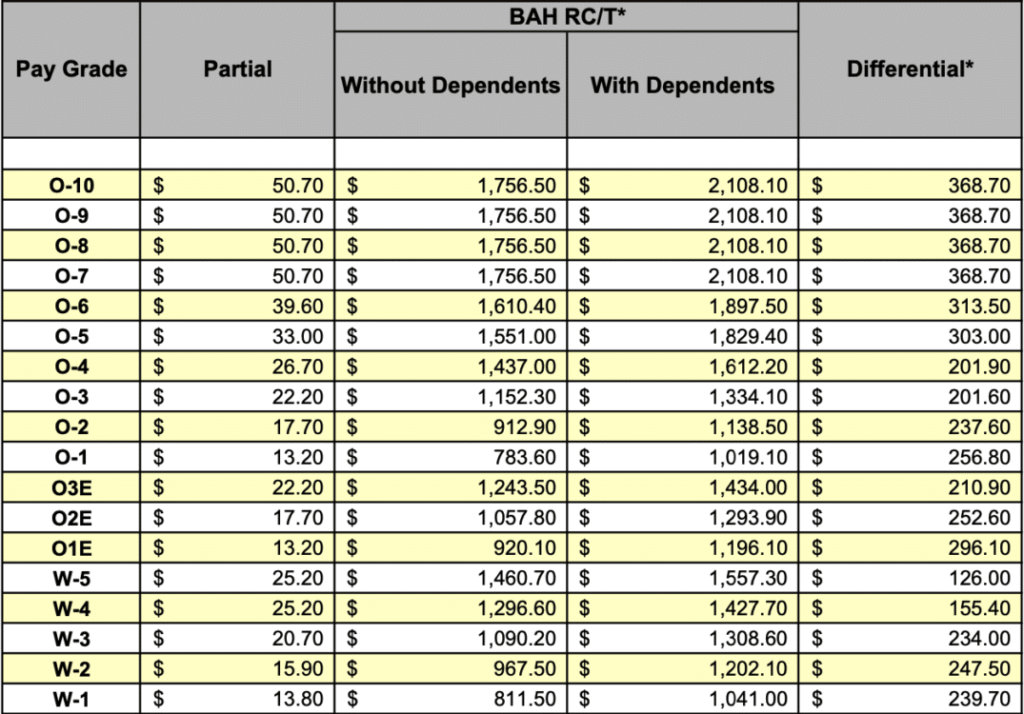
Depending on an individual’s situation, provisions of the program may include coverage of tuition and fees, a monthly housing allowance, a books and supplies stipend, Yellow Ribbon payments, college fund, rural benefit payments and transferability to eligible immediate Family members (Spouse and Children).
Post-9/11 GI Bill (Chapter 33) Rates
Does GI Bill Pay for Housing?
The Post-9/11 GI Bill is a comprehensive education benefit program for veterans, active-duty service members, and their dependents. One of the key benefits of this program is the monthly housing allowance, which helps eligible individuals cover their housing expenses while pursuing their education. In this article, we’ll explore how the GI Bill housing allowance works and who is eligible to receive it.
Eligibility for GI Bill Housing Allowance
To be eligible for the GI Bill housing allowance, you must meet certain requirements. Firstly, you must be eligible for the Post-9/11 GI Bill program. This means you must have served on active duty for at least 90 days after September 10, 2001, or have been discharged due to a service-connected disability. Additionally, you must be pursuing a degree or certificate program at an accredited institution of higher learning.
The housing allowance is based on the monthly military Basic Allowance for Housing (BAH) rates for an E-5 with dependents. The BAH rates vary depending on the location of your school. If you’re attending school in the United States, the housing allowance will be based on the BAH rates for the location of your school. If you’re attending a foreign institution, the housing allowance will be based on the national average BAH rate.
How Much Housing Allowance Will I Receive?
The amount of housing allowance you’ll receive depends on several factors, including your eligibility tier, the location of your school, and the number of credits you’re taking.
If you’re taking in-person courses in the United States, your housing allowance will be based on the BAH rates for the location of your school. The housing allowance will be prorated based on the percentage of Post-9/11 GI Bill benefits you’re eligible for. For example, if you’re eligible for 100% of the Post-9/11 GI Bill benefits, you’ll receive the full BAH rate. If you’re eligible for 50% of the benefits, you’ll receive half of the BAH rate.
If you’re taking online-only courses or attending a foreign institution, your housing allowance will be based on the national average BAH rate. The national average BAH rate for the 2023-2024 academic year is $1,054.50.
How to Apply for GI Bill Housing Allowance
To apply for the GI Bill housing allowance, you’ll need to submit an application to the Department of Veterans Affairs (VA). You can apply online through the VA’s website or by mail.
To apply online, visit the VA’s website and click on “Apply for Education Benefits.” You’ll need to create an account and complete the application form. You’ll also need to provide supporting documents, such as your DD Form 214, Certificate of Eligibility, and proof of enrollment.
To apply by mail, you can download the application form from the VA’s website and mail it to the address listed on the form.
Conclusion
The GI Bill housing allowance is a valuable benefit for eligible veterans, active-duty service members, and their dependents. If you’re pursuing a degree or certificate program, you may be eligible for a monthly housing allowance to help cover your housing expenses. The amount of the housing allowance varies depending on your eligibility tier, the location of your school, and the number of credits you’re taking. Applying for the housing allowance is easy, and you can do it online or by mail.
FAQ
Does the GI Bill give you housing allowance?
How does GI Bill affect housing?
Does GI Bill pay for everything?
What is the maximum GI Bill payout?
Other Resources :
Depending on an individual’s situation, provisions of the program may include coverage of tuition and fees, a monthly housing allowance, a books and supplies stipend, Yellow Ribbon payments, college fund, rural benefit payments and transferability to eligible immediate Family members (Spouse and Children).